Imagine this: you’re enjoying a sunny afternoon, indulging in your favorite ice cream, when suddenly a sharp pain shoots through your tooth. You try to ignore it, but the discomfort persists, turning every meal into a dreaded experience. This scenario, unfortunately, is all too common. Many people avoid the dentist until pain forces their hand. But what if there was a way to prevent such unpleasant surprises? Enter regular dental check-ups—a simple yet powerful tool in maintaining not just oral health but overall well-being.
In this blog, we’ll explore why regular dental check-ups are essential, delving into the myriad benefits they offer, from early detection of potential issues to the prevention of serious dental problems. We’ll also discuss how these visits can contribute to better general health, debunk some common myths, and provide practical tips to make the most out of your dental appointments.
The Foundation of Oral Health
Early Detection and Prevention
One of the most significant advantages of regular dental check-ups is the ability to detect problems early. Dentists are trained to spot issues that may not be visible or painful yet but could become major concerns if left untreated. During a routine examination, a dentist can detect:
- Cavities: Small cavities can be easily treated with fillings, but if ignored, they can lead to more extensive decay and even tooth loss.
- Gum Disease: Early stages of gum disease (gingivitis) can be reversed with proper care, while advanced stages (periodontitis) require more intensive treatment and can lead to tooth loss.
- Oral Cancer: Dentists perform screenings for signs of oral cancer, which can be life-saving since early detection greatly increases the chances of successful treatment.
Professional Cleaning
No matter how diligent you are with brushing and flossing, there’s no substitute for a professional dental cleaning. Dentists and hygienists use specialized tools to remove plaque and tartar buildup that you can’t eliminate at home. This process not only helps prevent cavities and gum disease but also leaves your mouth feeling fresh and your teeth looking brighter.
Beyond the Mouth: The Connection Between Oral and Overall Health
Many people are unaware that oral health is closely linked to overall health. Poor oral hygiene can contribute to several serious health conditions, including:
- Cardiovascular Disease: Research has shown a correlation between gum disease and heart disease. Inflammation in the gums can lead to inflammation in the blood vessels, increasing the risk of heart attack and stroke.
- Diabetes: People with diabetes are more prone to gum disease, and severe gum disease can make it harder to control blood sugar levels.
- Respiratory Infections: Bacteria from infected gums can be inhaled into the lungs, potentially causing respiratory infections, pneumonia, and even chronic obstructive pulmonary disease (COPD).
Regular dental visits ensure that any oral health issues are managed promptly, reducing the risk of these systemic health problems.
Common Myths About Dental Check-Ups
“I Don’t Need To See a Dentist If My Teeth Aren’t Hurting.”
Pain is not the only indicator of dental issues. Many problems, like cavities and gum disease, can develop silently. Regular check-ups allow your dentist to catch and treat these issues before they become painful and more challenging to address.
“Brushing and Flossing Are Enough”
While good oral hygiene practices are crucial, they are not a substitute for professional dental care. Dentists have the expertise and tools to clean areas you might miss and to identify issues that are not visible to the naked eye.
“Dental Check-Ups Are Too Expensive”
Skipping dental appointments to save money can be a false economy. Preventative care is typically much cheaper than treating advanced dental problems. Moreover, many dental insurance plans cover routine check-ups and cleanings, making them affordable.
Making the Most of Your Dental Visits
To get the maximum benefit from your dental check-ups, consider these tips:
- Schedule Regular Appointments: Most dentists recommend a check-up every six months. Your dentist might recommend a varied schedule depending on your specific requirements.
- Be Honest with Your Dentist: Inform your dentist about any changes in your health, medications, or any dental issues you’ve noticed, no matter how minor they may seem.
- Follow Your Dentist’s Advice: If your dentist recommends a treatment or a change in your oral hygiene routine, follow their guidance. They genuinely care about what’s best for you.
- Ask Questions: Don’t hesitate to ask your dentist about any concerns or curiosities you have regarding your oral health. Being informed empowers you to take better care of your teeth and gums.
Regular dental check-ups are more than just an obligation—they are a proactive step towards maintaining optimal health. By preventing problems before they start, these routine visits save you from the discomfort, inconvenience, and expense of more extensive treatments. Furthermore, they play a vital role in safeguarding your overall health, highlighting the undeniable connection between your mouth and your body.
So, the next time you’re tempted to skip your dental appointment, remember the old adage: an ounce of prevention is worth a pound of cure. Prioritize your oral health and make those regular visits to your dentist. For those in the area, scheduling a check-up with a dentist in Circleville can be your first step towards a healthier, happier smile.





